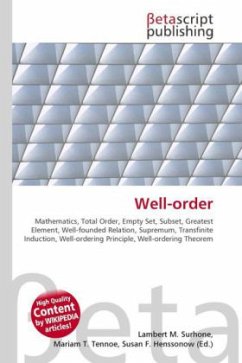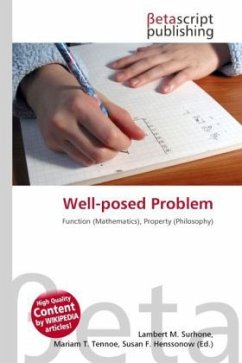High Quality Content by WIKIPEDIA articles! In Mathematics, the well-ordering theorem states that every set can be well-ordered. A set X is well-ordered if every non-empty subset of X has a least element under the given ordering. This is also known as Zermelo's theorem and is equivalent to the Axiom of Choice. Ernst Zermelo introduced the Axiom of Choice as an "unobjectionable logical principle" to prove the well-ordering theorem. This is important because it makes every set susceptible to the powerful technique of transfinite induction. The well-ordering theorem has consequences that may seem paradoxical, such as the Banach Tarski paradox. Georg Cantor considered the well-ordering theorem to be a "fundamental principle of thought." Most mathematicians however find it difficult to visualize a well-ordering of, for example, the set R of real numbers. In 1904, Gyula K nig claimed to have proven that such a well-ordering cannot exist. A few weeks later, though, Felix Hausdorff founda mistake in the proof.
Bitte wählen Sie Ihr Anliegen aus.
Rechnungen
Retourenschein anfordern
Bestellstatus
Storno








